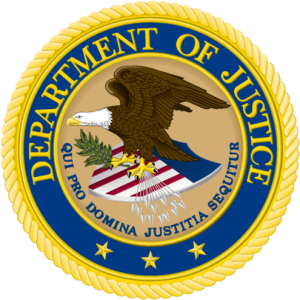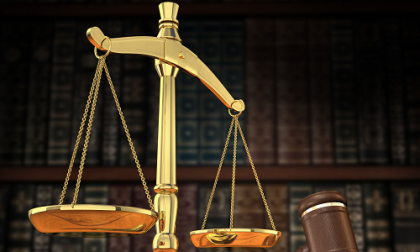CSIG, NACS File Motion to Intervene as Defendants in Wire Act Case
The Sheldon Adelson / Las Vegas Sands-funded Coalition to Stop Internet Gambling (CSIG) and the National Association of Convenience Stores (NACS) have filed a motion to intervene as defendants in the ongoing federal case brought by the State of New Hampshire and its two lottery agencies against the US Department of Justice and its reversal opinion regarding the intent of the US’s Wire Act and its limitations on most forms of online gambling.
The motion, filed on Thursday, May 23, also includes a request to add to the case docket a motion to dismiss New Hampshire’s claims or to declare summary judgment in favor of CSIG, NACS, and the DOJ.
 Both CSIG and NACS are already attached to the case as amici curiae (friends of the court) and CSIG’s orchestration of the DOJ’s recent reversal opinion of has already been publicized, both in the gambling world and in mainstream US news publications. The DOJ is also continuing its refusal to comply with a separate but related FOIA (Freedom of Information Act) filing by New Jersey’s attorney general regarding communications between the DOJ and CSIG about reversing the 2011 opinion regarding the Wire Act.
Both CSIG and NACS are already attached to the case as amici curiae (friends of the court) and CSIG’s orchestration of the DOJ’s recent reversal opinion of has already been publicized, both in the gambling world and in mainstream US news publications. The DOJ is also continuing its refusal to comply with a separate but related FOIA (Freedom of Information Act) filing by New Jersey’s attorney general regarding communications between the DOJ and CSIG about reversing the 2011 opinion regarding the Wire Act.
According to a supporting memorandum submitted by CSIG and NACS, the two organizations had previously “reserved the right” to make such a motion of intervention if “circumstances should warrant intervention. In a moment of chutzpah, the organizations declared they would do so if the DOJ was “‘not adequately representing the interests of’ amici.”
“That moment has now arrived,” continues the CSIG / NACS filing, and oddly enough, the reason offered parallels the complaints New Hampshire has already made. “Because Defendants [the DOJ] have declined to take a firm position on whether the Wire Act’s
‘whoever’ language applies to Plaintiffs—despite this Court’s repeated and express invitation for Defendants to do so—the calculus regarding intervention has significantly changed.”
The motion adds, “Were this Court or the Court of Appeals to conclude that the Wire Act does not apply to Plaintiffs because of the ‘whoever’ language, Plaintiffs would be entitled to entry of judgment. Yet only CSIG and NACS, as amici, have offered arguments on the ‘whoever’ issue in opposition to Plaintiffs. Accordingly, Defendants do not adequately represent the interests of CSIG and NACS, and amicus status is thus insufficient to protect their interests moving forward.”
CSIG and NACS seek to continue the argument that “whoever” applies to every imaginable entity in a universal sense, an argument that has little or no basis in US case law and that has already been countered robustly by the state’s counsel in an earlier filing. Nonetheless, that’s one of the foundation stones on which the two groups seek to continue making their argument.
However, there’s more to the motion to intervene than the “whoever” battle. The two groups also feel pressured by the DOJ’s failure not only to defend the “whoever” claim, but — to date — to even address it. That failure looms ever larger as the DOJ’s announced date for implementing the reversal opinion looms as early as June, with the possible effect of turning off all interstate communications related to gambling with the exception of horseracing.
Even worse for the DOJ, and better for online gambling’s backers, is that the motion by CSIG / NACS puts the DOJ even farther between the proverbial rock and a hard place, given the increasingly likely possibility that the DOJ doesn’t want to continue an active defense of a reversal opinion that may well be struck down, and regarding which some illicit activity within the DOJ itself may have occurred.
The motion to intervene notes that the State of New Hampshire and its two lottery entities oppose the filing, and that the DOJ appears not pleased with it as well. The motion states, “Defendants take no position on CSIG’s motion for intervention, except to observe that if the Court grants intervention, such intervention should be granted only under” a rule allowing intervention by right. The DOJ instead asserts that only permissive intervention is possible, “because Defendants adequately represent CSIG’s interest in this litigation.” That paragraph also lets slip that its Adelson and CSIG who are continuing to run this show, despite the inclusion of a declaration from NACS’ Senior Vice President of Government Relations, Lyle Beckwith, as part of the filing.


















If the defendants prevail in this case then the door is open to every person – or a class action – who lost money playing interstate online lotteries or other online gaming to sue for RICO damages. That is what the plaintiffs in the Mastercard case attempted to do in the 5th Circuit which prompted the court to find that the Wire Act didn’t apply to non-sports betting. But a ruling that the Wire Act does apply to non-sports betting would open state lotteries, credit card processors, banks and casinos to such attempts at redress for losses.